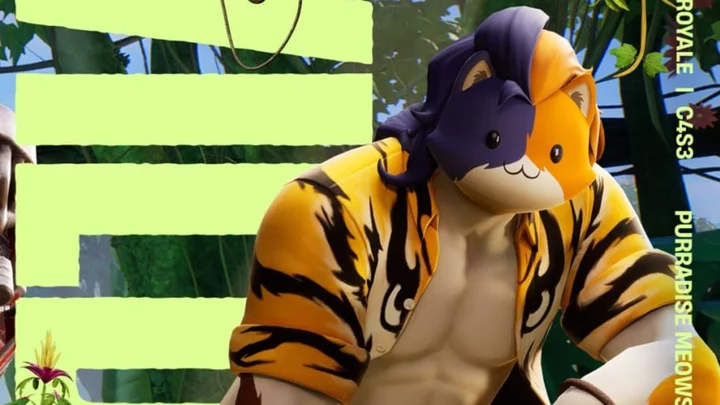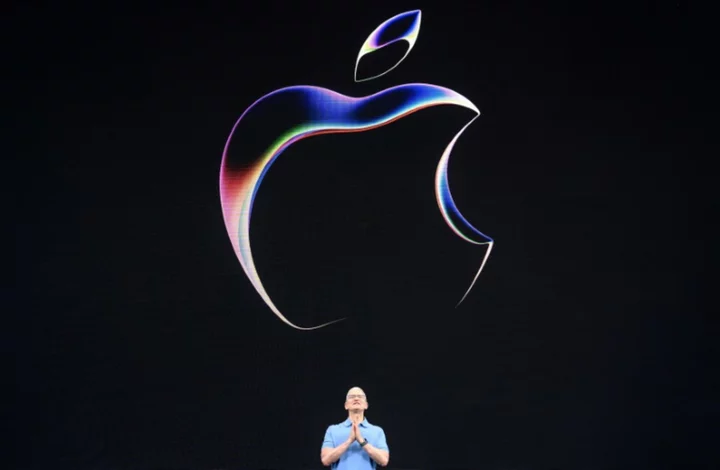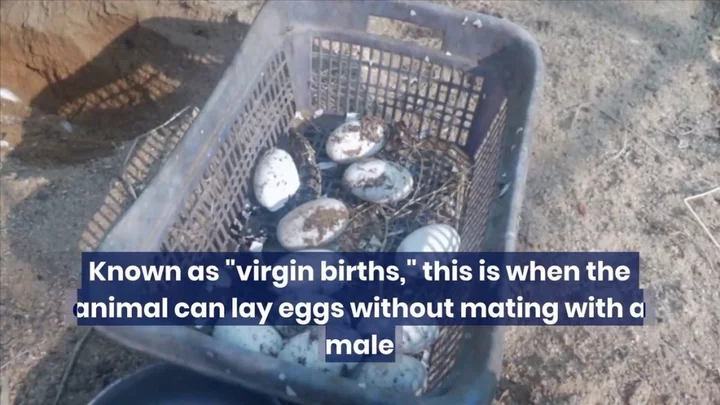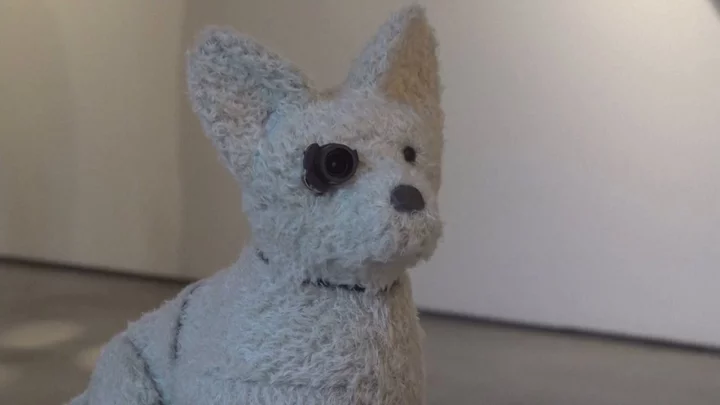
Warzone Season 4 Ranked Play Rewards: Full List
Warzone Season 4 Ranked Play has a range of new rewards, from weapon blueprints to camos, for players to earn based on kills, assists, and placement.
2023-06-09 00:50

Fortnite Chapter 4 Season 3 Secret Battle Pass Skin Leaked
According to leaks, the Fortnite Chapter 4 Season 3 secret Battle Pass skin is Purradise Meowscles, coming with two variant styles.
2023-06-09 00:48

AOMedia Research Workshop to Highlight Newest Media Codec Innovations at QoMEX 2023
GHENT, Belgium--(BUSINESS WIRE)--Jun 8, 2023--
2023-06-09 00:23

Apple, defying the times, stays quiet on AI
Resisting the hype, Apple defied most predictions this week and made no mention of artificial intelligence when it unveiled its latest slate of new products, including...
2023-06-09 00:21

PeopleGrove Named “Career Prep Platform of the Year” in 5th Annual EdTech Breakthrough Awards Program
SAN FRANCISCO--(BUSINESS WIRE)--Jun 8, 2023--
2023-06-08 23:59

Hundreds plucked from flooded homes; Ukraine dismisses counteroffensive reports
By Viktoriia Lakezina and Max Hunder KHERSON, Ukraine (Reuters) -Hundreds of Ukrainians were rescued from rooftops in the flood-stricken southern
2023-06-08 23:57

Here's how a crocodile made herself pregnant
A crocodile has made herself pregnant in what is believed by scientists to be a world first. The crocodile at the Costa Rica zoo created a foetus that was 99.9 per cent genetically identical to itself, often known as a "virgin birth." This process typically does not occur with crocodiles but with other species such as birds, lizards, snakes, fish and sharks. Sign up to our free Indy100 weekly newsletter Scientists believe this kind of solo reproduction could be traced back to the dinosaurs, as they suggest the species may have also been capable of this rare method. The latest study was published on Wednesday (June 7) in the Royal Society journal, Biology Letters. Back in January 2018, an egg was laid by an 18-year-old female American crocodile in Parque Reptilania, the BBC reported. The fully formed foetus did not hatch however and was stillborn. Researchers from Virginia Polytechnic Institute and State University, say this is the "first documentation" of this kind of reproduction in this species. Dr Warren Booth who has studied virgin births (parthenogenesis) for 11 years theorised that this reproduction method has not been seen in crocodiles because weren't looking out for this happening. ''There was a big increase in reports of parthenogenesis when people started keeping pet snakes. But your average reptile keeper doesn't keep a crocodile," he noted to the BBC. "This new evidence offers tantalizing insights into the possible reproductive capabilities of extinct archosaurian relatives of crocodilians, notably the Pterosauria and Dinosauria," experts said in the study. Have your say in our news democracy. Click the upvote icon at the top of the page to help raise this article through the indy100 rankings.
2023-06-08 23:49

An AI robot dog has become an art critic - and poops out his reviews
If AI wasn't advancing at a rapid enough rate, there's now a robot dog art critic in existence - and warning, he judges with his tail. AICC (Artificially Intelligent Critical Canine) has the ability to look around a room as well as move, and he can quickly come up with comments about the pieces. The pooch operates on wheels, and once he's gathered his thoughts, he 'poops' out a piece of paper with his full review. Pretty impressive. Click here to sign up for our newsletters
2023-06-08 23:49

Options Named Microsoft Solutions Partner for Security
LONDON & NEW YORK & HONG KONG--(BUSINESS WIRE)--Jun 8, 2023--
2023-06-08 23:45

Space missions are damaging astronauts’ brains, study finds
Long space missions are damaging astronauts’ brains, scientists have said. Experts now suggest that those who are spending a long time in space should take three years to allow their brains to recover from the changes experienced during their journeys. Those are the findings of a new study looking at how brain’s react to leaving Earth’s gravity. It comes ahead of what is expected to be a new era of long journeys around space, including the first missions to Mars. Researchers looked at brain scans of 30 astronauts, taken before and after they travelled to space. They found that journeys over six months left the brain’s ventricles significantly expanded – and they could take up to three years to recover. The ventricles are cavities in the brain that are filled with a fluid that protects and nourishes the brain, as well as removing waste. Usually, that fluid is helpfully distributed around the body, but the lack of gravity in space can mean that the fluid is pushed upward and shoves the brain higher in the skull. “We found that the more time people spent in space, the larger their ventricles became,” said Rachael Seidler, a professor of applied physiology and kinesiology at the University of Florida and an author of the study. “Many astronauts travel to space more than one time, and our study shows it takes about three years between flights for the ventricles to fully recover.” Read More Scientists demonstrate wireless power transmission from space for first time Japan to launch satellite made of wood in 2024 US tells China: ‘We’ll fight in outer space if we have to’
2023-06-08 23:27

Top Three Benefits of Energy Projects on Military Installations
WARWICK, R.I.--(BUSINESS WIRE)--Jun 8, 2023--
2023-06-08 23:23

Leap Expands into New England, Launches Grid Services Offerings to Drive the Growth of Distributed Energy Resources in Massachusetts and Rhode Island
SAN FRANCISCO--(BUSINESS WIRE)--Jun 8, 2023--
2023-06-08 23:21
